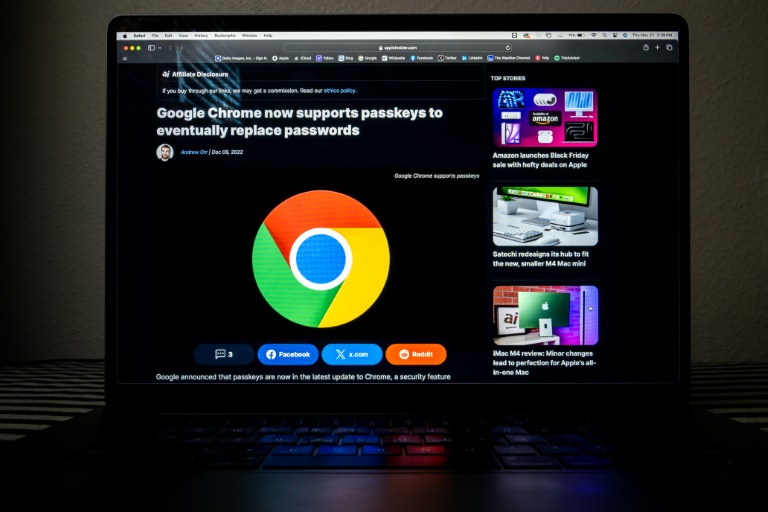Science
Millions Affected by SlopAds Malware Campaign Targeting Google Play

An extensive malware campaign known as SlopAds has compromised millions of applications on Google Play, generating billions of fraudulent ad requests daily. According to reports, the malicious apps associated with this campaign were downloaded over 38 million times across 228 countries, with significant traffic originating from the United States (30%), India (10%), and Brazil (7%).
Despite efforts by Google to address this threat, cybersecurity experts warn that the hackers are likely to adapt their strategies, potentially leading to further exploitation of victims. The Satori Threat Intelligence and Research Team from HUMAN detailed in a report shared with The Hacker News that these applications use sophisticated techniques like steganography to conceal their malicious payloads. They create hidden WebViews that redirect users to sites controlled by the attackers, generating fraudulent ad impressions and clicks.
Understanding the Risks of SlopAds
To grasp the full extent of this cybersecurity risk, Digital Journal consulted Aditya Sood, Vice President of Security Engineering and AI Strategy at Aryaka. Sood highlighted the primary dangers posed by compromised applications on the app store. He explained, “Compromised applications hosted on the App Store exploit user trust in the platform’s security. Once attackers gain control, whether by injecting malicious code, hijacking developer accounts, or abusing third-party ad SDKs, these apps can deliver harmful payloads in the form of malicious advertisements.”
These malicious ads can redirect users to phishing sites, install additional malware, or collect sensitive information, often circumventing traditional review processes since ads are dynamically served after installation.
The implications extend beyond individual users. Sood pointed out that “beyond exposing users to data theft and fraud, this also damages the reputation of the App Store and the affected developers, erodes consumer trust in mobile ecosystems, and creates opportunities for large-scale exploitation.”
Proactive Measures Needed to Combat Malware
Despite the steps taken so far, the threat has not been fully mitigated. Sood cautioned that as Google continues to remove malicious applications from its Play Store, the actors behind SlopAds are likely to evolve their tactics and launch new campaigns. He emphasized the importance of individuals and organizations taking preventative actions against malware.
For businesses, a more robust and proactive approach is essential. Sood recommended that applications should only be downloaded directly from Google’s Play Store, as the malware activates only when an ad is clicked. Furthermore, organizations should implement anti-malware solutions that proactively neutralize threats before they can cause harm.
With the right tools in place, companies can enhance their resilience against rising cybersecurity threats. The ongoing challenge of malware like SlopAds underscores the need for vigilance and adaptability in an ever-changing digital landscape.
-

 Science3 months ago
Science3 months agoToyoake City Proposes Daily Two-Hour Smartphone Use Limit
-

 Top Stories3 months ago
Top Stories3 months agoPedestrian Fatally Injured in Esquimalt Collision on August 14
-

 Health3 months ago
Health3 months agoB.C. Review Reveals Urgent Need for Rare-Disease Drug Reforms
-

 Technology3 months ago
Technology3 months agoDark Adventure Game “Bye Sweet Carole” Set for October Release
-

 World3 months ago
World3 months agoJimmy Lai’s Defense Challenges Charges Under National Security Law
-

 Lifestyle3 months ago
Lifestyle3 months agoVictoria’s Pop-Up Shop Shines Light on B.C.’s Wolf Cull
-

 Technology3 months ago
Technology3 months agoKonami Revives Iconic Metal Gear Solid Delta Ahead of Release
-

 Technology3 months ago
Technology3 months agoApple Expands Self-Service Repair Program to Canada
-

 Technology3 months ago
Technology3 months agoSnapmaker U1 Color 3D Printer Redefines Speed and Sustainability
-

 Technology3 months ago
Technology3 months agoAION Folding Knife: Redefining EDC Design with Premium Materials
-

 Business3 months ago
Business3 months agoGordon Murray Automotive Unveils S1 LM and Le Mans GTR at Monterey
-

 Technology3 months ago
Technology3 months agoSolve Today’s Wordle Challenge: Hints and Answer for August 19









